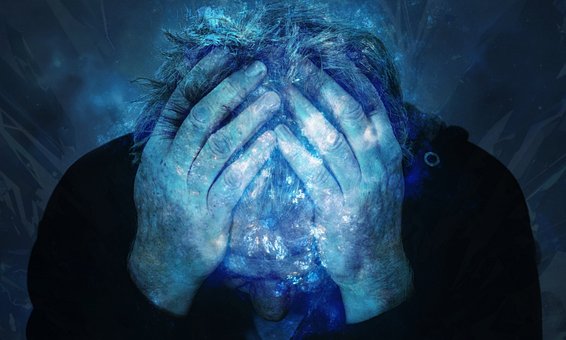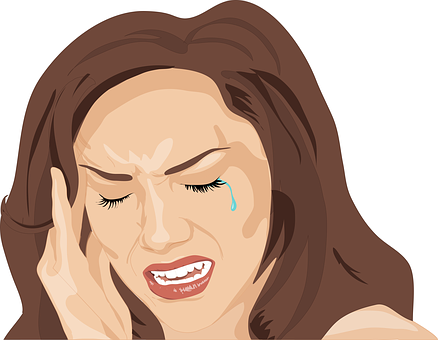HEADACHES AND MIGRAINES

Headaches are one of the commonest health complaints of the human population. A large proportion of us has experienced this pain at a point or more in our lives so we should all know that feeling.
The Anatomy and Physiology of the brain tells us that the brain can't feel pain. Of course, this is decipherable since the brain doesn't have nociceptors (receptors that carry sensory pain information). Then, if the brain cannot feel pain, how come we have headaches?
Surrounding the brain tissue and in it are nerves, blood vessels, muscles and meninges from where the pain sensation comes from. These sense pain from the dilation of a blood vessel, inflammation of a structure, presence of a head injury or pressure in the head, and many other triggers for headache.
Headaches can be classified into:
• Primary- If not caused by an underlying health issue, and are usually not dangerous and,
• Secondary- If caused by an underlying health issue like meningitis, and subdural hematoma, and intracranial bleeding.
TYPES AND CAUSES OF HEADACHE
1. Tension headaches: It is the most common type of headache. Usually mild to moderate occurring from minutes to hours and can be felt as pressure in the head, increase in tension as the name implies. They are caused by contractions in the muscles of the head and neck.
2. Cluster headaches: Are quite rare and occur mostly in smokers for minutes to hours. It is felt as a sharp, stabbing pain in the head. Exact cause is unknown but the Hypothalamus has been found to play a role.
3. Thunderclap headaches: Are sudden and severe headache reaching maximum intensity with seconds to minutes. They are caused mostly by primary causes and secondarily by subdural hematoma and meningitis.
4. The migraine
As a generalization, the causes of headache include stress, anxiety, lack of sleep, head injuries, noise, sinus infections, effects of some medication and many others.

MIGRAINE
A migraine is a type of primary headache that is felt as a pulsating pain on one side of the head mostly, or both sometimes.
Symptoms of migraine include:
•Sensitivity to sound, motion
•Photophobia
•Nausea and
•Vomiting.
The inclusion of these symptoms of migraine and the one-sided, pulsating pain feeling underlie the basis of differentiating headaches from migraines. So when you do get migraines, you definitely do not want to put on the light bulbs, blast loud music, watch TV, use your phone, or even read in a moving vehicle.
Migraines can exist with or without aura. Aura occurs about 30 minutes to one hour before the migraine headache starts. Migraine with aura (ocular migraine) comprises the above symptoms of migraine in addition to:
• Seeing zigzag patterns
• Seeing flashing lights
• Hallucinations
• Loss of vision in one or both eyes
• Blurry vision

TREATMENT: Headaches usually don't require serious treatment processes and can without stress be taken care of with painkillers like Acetaminophen, Ibuprofen from over-the-counter sources. However, you don't want to practice self-med. See your physician for proper diagnosis and prescription.
In addition, secondary headaches are rather addressed by managing or treating the underlying health issue.
Migraines are treated with Triptan, analgesics, NSAIDS, and medications that relieve nerve pain.
Practice these to reduce the risk of having headaches and migraines:
- Exercise and sleep well
- Stay hydrated and drink water
- Have regular, balanced, and healthy meals
- Avoid drinking alcohol and smoking
- Don't get stressed out
- Maintain healthy postures
Read more at https://www.rd.com/health/conditions/how-to-prevent-headaches/
+++
• Migraines are more common in females than in males
• More males suffer cluster headaches than females
• Chronic migraines can be treated by Botox. Yes, Botox.
• One in twenty adults suffer a headache nearly every day.
• Headaches can be caused by hypoglycemia and dehydration.
• Half the people who have migraines are not aware it is migraine.
• Taking excessive headache medications can cause rebound headaches.
• Oversleeping causes headaches.
• Migraines are inheritable.
Glad you read! Thank you!
SOURCES-
https://en.m.wikipedia.org/wiki/Headache
www.migraine.com
Images sourced from pixabay.com